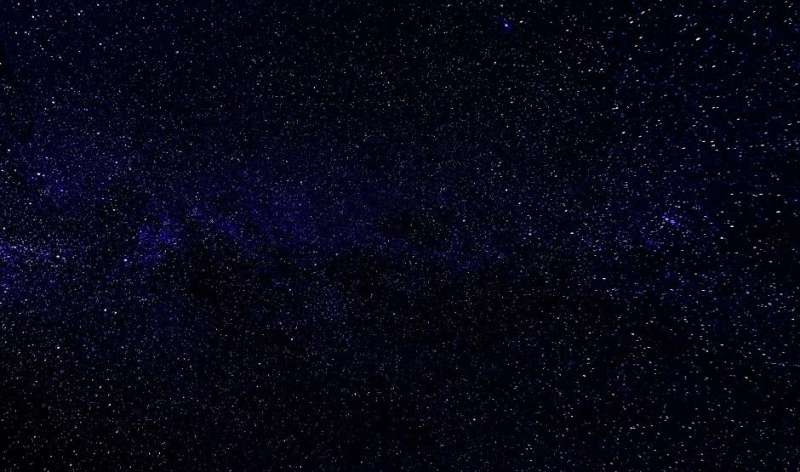August 16, 2018 feature
Gravitational wave detectors to search for dark matter

Gravitational wave detectors might be able to detect much more than gravitational waves. According to a new study, they could also potentially detect dark matter, if dark matter is composed of a particular kind of particle called a "dark photon." In the future, LIGO (Laser Interferometer Gravitational Wave Observatory) scientists plan to implement a search for dark photons, which will include certain previously unexplored regions of the dark photon parameter space.
A team of physicists, Aaron Pierce, Keith Riles, and Yue Zhao from the University of Michigan, have reported their proposal for using gravitational wave detectors to search for dark matter in a recent paper published in Physical Review Letters.
"This proposal nicely bridges the newly born field of gravitational wave astronomy with that of particle physics," Zhao told Phys.org. "Without any modifications, a gravitational wave detector can be used as a very sensitive direct dark matter detector, with the potential for a five-sigma discovery of dark matter."
As the physicists explain in their paper, if dark photons have a very light mass, then they can be considered to behave like an oscillating background field, with the oscillation frequency determined by their mass. Gravitational wave detectors could potentially detect these oscillations because the oscillations may affect test objects placed in the gravitational wave detectors. For example, if two test objects located at different positions in the detector experience different displacements, this difference may be due to the relative phase of the dark photon field's oscillations at these different positions.
The physicists expect that both present Earth-based gravitational wave detectors such as LIGO, as well as future space-based gravitational wave detectors such as LISA (Laser Interferometer Space Antenna), will have the ability to search for dark photon dark matter. Using more than one detector would allow for cross-checking and better sensitivity.
In the future, the scientists plan to work on further developing the new dark matter search method and determining exactly what kind of signal a gravitational wave detector would receive if a dark photon were nearby.
"We plan to push this work well beyond a theoretical proposal," Zhao said. "First, we plan to carry out the data analysis using a simplified signal model and a straightforward search algorithm. Then we will gradually refine our search method and include a detailed simulation of the signal and detector response."
More information:
Aaron Pierce, Keith Riles, and Yue Zhao. "Searching for Dark Photon Dark Matter with Gravitational Wave Detectors." Physical Review Letters. DOI: 10.1103/PhysRevLett.121.061102
Also at arXiv:1801.10161 [hep-ph]
Journal information: Physical Review Letters
© 2018 Phys.org




















